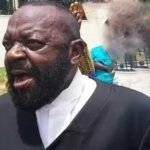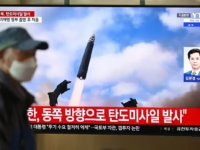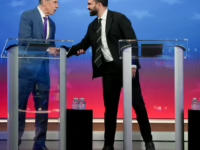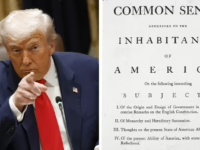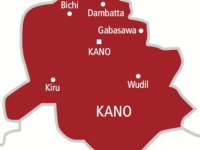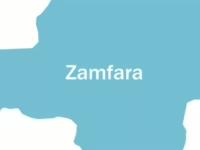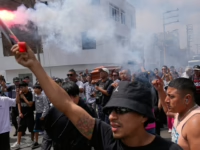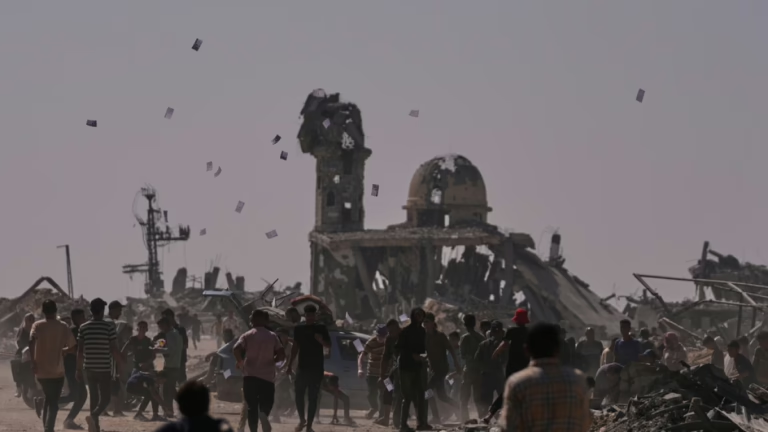Former U.S. President Donald Trump has indicated that multiple Middle Eastern nations have expressed willingness to deploy troops to Gaza to confront Hamas, reiterating his stern warnings to the Palestinian faction amid the israel-finds-returned-body-from-hamas-not-hostage/” title=”Tensions Soar as … Uncovers Returned Body from Hamas-Not the …i Hostage Expected”>delicate ceasefire currently in place.
“Several of our NOW STRONG ALLIES in and around the Middle East have enthusiastically conveyed to me their readiness, upon my request, to enter GAZA with substantial military force to ‘deal decisively with Hamas’ if the group continues to breach its commitments,” Trump posted on Truth Social this Tuesday.
Related Articles
list of 3 itemsend of list
While Trump did not name the specific countries offering to intervene in Gaza, he singled out Indonesia for its notable support in the region.
“I extend my gratitude to the influential nation of Indonesia and its exceptional leadership for their significant contributions to the Middle East and the United States,” Trump remarked.
Although Jakarta and other governments have proposed sending peacekeeping forces to help stabilize Gaza, none have committed to engaging Hamas militarily.
“The unprecedented solidarity and goodwill toward the Middle East is something unseen in centuries! It’s truly inspiring! I have told these nations, along with Israel, ‘NOT YET!’ There remains hope that Hamas will choose the right path,” the former president added.
“Should they fail, the demise of Hamas will be SWIFT, SEVERE, and UNRELENTING!”
Since the ceasefire took effect on October 10, Israeli forces have reportedly killed nearly 100 Palestinians.
Trump frequently issues similar warnings against Hamas, yet it remains uncertain what additional measures the U.S. or allied forces could take to pressure the group beyond Israel’s ongoing efforts.
In recent years, Israel has systematically targeted and eliminated much of Hamas’s political and military leadership, while devastating Gaza’s infrastructure and imposing severe blockades that many human rights organizations and UN investigators classify as genocidal actions.
Trump had previously praised the ceasefire, which his administration played a role in negotiating, as a landmark step toward lasting peace in the region.
However, from the beginning of the truce, Israeli forces have continued to kill Palestinians accused of approaching Israeli-controlled zones, areas that lack clear demarcation.
Furthermore, Israel has maintained strict limitations on humanitarian aid entering Gaza, despite agreements promising increased assistance.
According to Gaza’s Government Media Office, only 986 aid trucks have been permitted into the territory since the ceasefire began, far below the anticipated 6,600 trucks, with a target of 600 trucks daily.
The ceasefire was severely tested last Sunday when Israel conducted a series of airstrikes killing dozens of Palestinians and halted all aid deliveries following the deaths of two Israeli soldiers in Rafah.
Israel accused Hamas of responsibility for the soldiers’ deaths, but the Palestinian group denied involvement, emphasizing that the incident occurred within an area controlled by Israel.
Some U.S. media reports suggested the soldiers died after encountering unexploded ordnance.
Beyond immediate challenges to the ceasefire, significant uncertainties persist regarding Gaza’s long-term governance and stability.
Trump has insisted that Hamas must relinquish its weapons, though the group has tied disarmament to the recognition and establishment of a Palestinian state.
On Sunday, Trump told Fox News there is no fixed deadline for Hamas to disarm.
Later that day, Vice President JD Vance, visiting Israel, proposed that an international peacekeeping force should first establish “security infrastructure” in Gaza before Hamas disarms.


